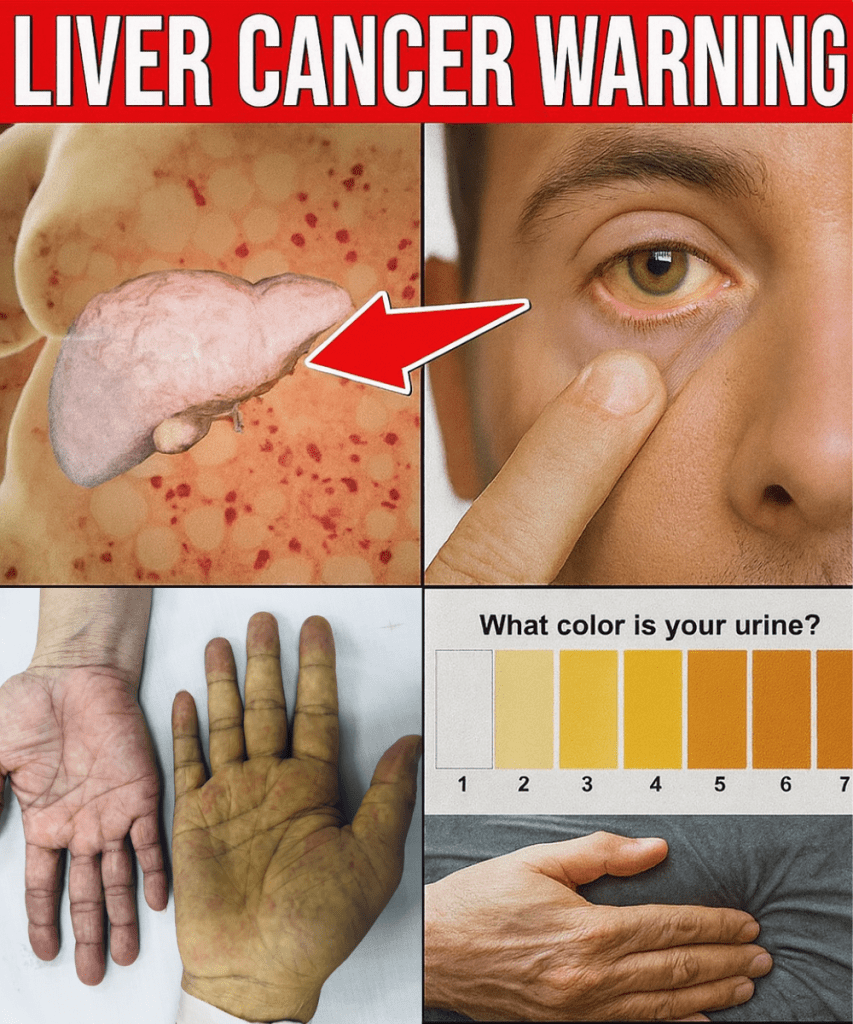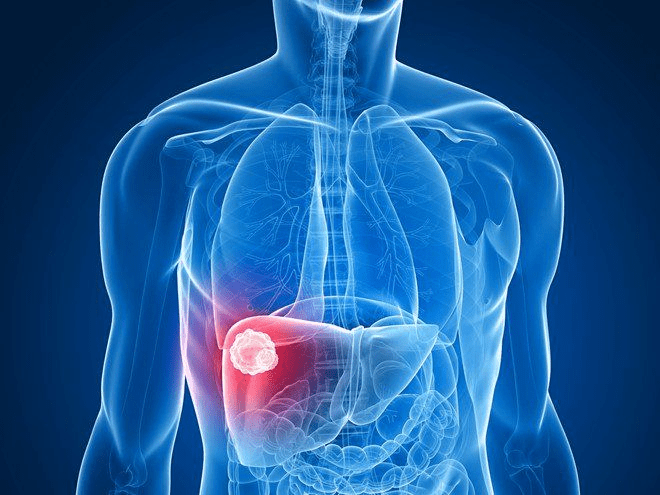Your liver is a silent hero, tirelessly filtering toxins, aiding digestion, and balancing your body’s vital processes. But what happens when this powerhouse organ is under attack? Liver cancer is a stealthy threat, often lurking without obvious symptoms until it’s advanced. Catching it early can be a game-changer, potentially saving your life. This article dives into the 11 critical early warning signs of liver cancer, crafted to grip your attention and empower you to act. Don’t let these subtle signals slip by unnoticed—your health depends on it.

Why Early Detection Is a Lifesaver
The liver’s incredible ability to regenerate can be a double-edged sword. It keeps functioning even when damaged, masking serious issues like cancer until they’re harder to treat. Recognizing the early signs gives you a fighting chance to address problems before they spiral. These symptoms might seem minor, but persistent changes in your body could be your liver’s quiet cry for help. Let’s explore the warning signs that demand your attention.
🩺 1. Unexplained Weight Loss
Have you noticed the scale dipping without changes to your diet or exercise routine? Sudden, unintentional weight loss is a red flag. When your liver is compromised by cancer, it struggles to process nutrients effectively, leading to pounds shedding without explanation. This isn’t a welcome surprise—it’s a signal that something’s wrong.
Tumors disrupt the liver’s role in metabolism, causing your body to burn energy differently. If you’ve lost more than 5% of your body weight in a few months without trying, it’s time to consult a doctor.
😴 2. Persistent Fatigue That Won’t Quit
Feeling drained no matter how much you sleep? This isn’t just everyday tiredness. Persistent fatigue that lingers despite rest is a hallmark of liver trouble. When cancer affects the liver, it hampers the organ’s ability to detoxify blood and regulate energy, leaving you exhausted in a way that coffee can’t fix.
This overwhelming fatigue often feels like a heavy weight, making even simple tasks daunting. If you’re constantly battling this kind of exhaustion, don’t brush it off as stress—get it checked.
🍽️ 3. Loss of Appetite
Suddenly uninterested in your favorite meals? A diminished appetite, or feeling full after just a few bites, could point to liver issues. The liver plays a key role in digestion and appetite regulation, and cancer can throw this balance off, making food less appealing.
This symptom is sneaky because it’s easy to attribute to stress or a passing phase. But if you’re consistently avoiding meals or struggling to eat normally, it’s a sign your liver might be struggling too.
🤕 4. Abdominal Pain or Swelling
A nagging ache in the upper right side of your abdomen or a bloated, heavy feeling could be more than indigestion. This discomfort often signals that the liver is enlarging due to tumor growth, pressing against nearby organs and tissues.
Some people notice visible swelling or a distended belly, which can feel alarming. If this pain or bloating persists for weeks, especially if it’s localized on the right side, don’t ignore it—your liver could be sending an urgent message.
🤢 5. Nausea and Vomiting
Frequent nausea or vomiting, unrelated to food poisoning or a virus, is a troubling sign. When liver function falters due to cancer, toxins can build up in the body, triggering these unsettling symptoms.
This isn’t the occasional upset stomach—it’s a recurring issue that disrupts your daily life. If you’re experiencing nausea that doesn’t have an obvious cause, it’s worth investigating further with a healthcare provider.
🟡 6. Jaundice: Yellowing Skin and Eyes
One of the most striking signs of liver dysfunction is jaundice, where your skin and the whites of your eyes take on a yellowish hue. This happens when the liver can’t process bilirubin, a pigment from red blood cell breakdown, causing it to build up in your system.
Jaundice is a clear signal that your liver is struggling. If you notice this discoloration, even if it’s subtle, seek medical attention promptly—it’s one of the most direct signs of liver trouble.
🚻 7. Changes in Urine and Stool Color
Dark urine or pale, clay-colored stools are warning signs you shouldn’t overlook. These changes often indicate a problem with bile flow, which the liver produces to aid digestion. Cancer can obstruct bile ducts, altering the color of your waste.
Dark urine might look like tea or cola, while stools may appear unusually light or chalky. If these changes persist, they’re a strong clue that your liver needs attention.
🧴 8. Persistent Itchy Skin
Itching that won’t go away, even without a rash, can be maddening. When bile salts accumulate in your bloodstream due to liver dysfunction, they irritate your skin, causing relentless itching.
This isn’t the kind of itch a lotion can soothe. If you’re scratching constantly and over-the-counter remedies aren’t helping, it could be a sign that your liver is crying out for help.
🦵 9. Swelling in Legs and Ankles
Puffy ankles or swollen legs, known as edema, can be an unexpected sign of liver trouble. When the liver fails to produce enough proteins like albumin, fluid leaks into surrounding tissues, causing noticeable swelling.
If your shoes feel tighter or your legs look puffier than usual, don’t chalk it up to long days on your feet. This symptom, especially when paired with others, warrants a closer look.
🩸 10. Easy Bruising or Bleeding
Bruising at the slightest bump or noticing frequent nosebleeds or bleeding gums? Your liver produces clotting factors that help your blood coagulate. Cancer can disrupt this process, making you more prone to bruising and bleeding.
If you’re seeing unexplained bruises or bleeding that’s hard to stop, it’s a sign your liver’s function is compromised. Don’t wait—get it evaluated.

🌡️ 11. Persistent Fever or Malaise
A low-grade fever that lingers or a general sense of feeling unwell, known as malaise, can be your body’s way of signaling trouble. The immune system often responds to cancer by raising your body temperature, even without an infection.
This vague feeling of being “off” can be easy to dismiss, but if it persists alongside other symptoms, it’s a clue that something serious, like liver cancer, might be at play.
🩻 When to Act: Don’t Wait for Answers
These symptoms don’t always mean liver cancer—stress, diet, or other conditions can mimic them. But if you’re experiencing one or more of these signs for weeks, it’s critical to see a doctor. Early testing, like blood work, ultrasounds, or CT scans, can catch liver cancer at a stage when treatment is most effective.
Don’t let fear hold you back. The sooner you act, the better your chances of tackling any issue head-on. Knowledge is power, and catching problems early can make all the difference.
🌿 Protecting Your Liver for the Long Haul
Your liver is resilient, but it’s not invincible. Supporting its health can lower your risk of serious issues like cancer. Here are practical ways to keep your liver in top shape:
Eat a nutrient-rich diet packed with fruits, vegetables, lean proteins, and whole grains to fuel your liver’s detox processes.
Limit alcohol to avoid overloading your liver with toxins it has to filter.
Cut back on processed foods, sugary drinks, and high-fat meals that stress your liver.
Stay active with regular exercise to maintain a healthy weight and support liver function.
Schedule routine check-ups, especially if you have risk factors like hepatitis, obesity, or a family history of liver disease.
Small, consistent choices can go a long way in safeguarding this vital organ.

💡 Final Thoughts: Listen to Your Body
Your liver doesn’t scream for attention until damage is significant, which is why these early warning signs are so critical. Unexplained weight loss, persistent fatigue, jaundice, or any of the other symptoms listed could be your body’s way of waving a red flag. By staying vigilant and acting quickly, you give yourself the best shot at catching liver cancer early, when treatment is most effective.
Your health is your greatest asset. Don’t ignore the whispers of your body—pay attention, seek medical advice when needed, and make liver-friendly choices every day. Empower yourself with knowledge, and take control of your well-being today.









